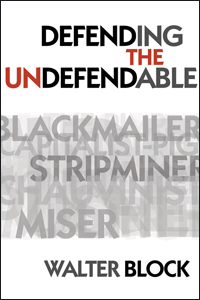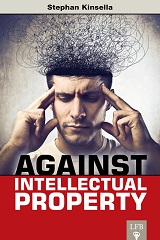Jag har precis gått igenom och läst Henrik Alexanderssons text ”Bloggen som politiskt vapen”. Jag vill med denna post dels uppmärksamma texten, dels ta upp en del saker jag tycker är bra med den. Sammanfattningsvis vill jag gå igenom en del saker som jag önskar hade gjorts tydligare. Jag kommer att gå igenom texten kapitel för kapitel och väva in Alexanderssons åsikter med mina egna i den mån jag kan.
Innehållsförteckningen och genomgång av ”Bloggen som politiskt vapen”.
Inledning . . . . . . . . . . . . . . . . . . . . . . . . . . . . . . . . . 4
I inledningen får vi veta lite om Alexanderssons politiska bakgrund, alla de år av harvande inom kommunalpolitik, aktivism, skribentarbete etc. Men det är på senare tid som han har känt att han verkligen kan göra skillnad, eller åtminstone påverka olika händelseförlopp och åsikter. Alexandersson är helt övertygad om bloggen som opinionsbildande verktyg och politiskt vapen. Hans blogg är en av Sveriges främsta på inom det politiska området och resten av ‘gammelmedia’ är nog i allra högsta grad fullt medvetna om vad han skriver om. Han vet vad han talar om, han var/är verkligen i hetluften under granskningen av FRA-lagen.
Med ena foten i Bryssel och den andra på resande fot känner han sig lyckligt lottad i och med att han får tusentals besökare till sin blogg och att han påverkar i olika politiska debatter. Hans blogg om någon borde sporra andra till att börja skriva, vilket jag personligen skriver under på.
Ett kraftfullt redskap. . . . . . . . . . . . . . . . . . . . . . . 5
En av bloggens främsta egenskaper är omedelbarheten och att den är öppen hela tiden alla dagar om året. Omedelbarheten och det möjliga omfånget på läskretsen gör bloggen till ett effektivt sätt att nå ut med sina åsikter. Bloggen är ett mycket bra verktyg för opinionsbildning och det finns möjlighet att använda sig av inte bara text, utan också ljud, video, länkar, referenser etc.
Man kan mer eller mindre bevaka ett händelseförlopp eller en debatt direkt medan den sker. Alexandersson har heller inte bara en svensk läskrets utan hans blogg är internationell, vilket inte ens gammelmedia mäktar med, iallfall inte på det sättet. Henrik satt och skrev i riksdagens lokaler när Fredrick Federley talade inför riksdagen i samband med FRA-debatten.
En närmast organisk process . . . . . . . . . . . . . . . . . . 6
Krosspollinationen av idéer, länkar, faktagranskning etc. görs av alla typer av människor. Här har vi en rad olika akademiker som kan få debattera och ägna sig åt faktagranskning tillsammans med glada amatörer eller helt vanliga studenter. Detta sker öppet för alla.
Alexandersson är ödmjuk när han skriver att han själv inte alltid är den bäst påläste, men intressenivån på hans inlägg är ofantligt hög, så pass hög att han sporrar oss andra till att agera eller reagera på denna typ av information. Själva poängen är att man inte själv behöver vara påläst. Det finns alltid många fler än du själv som står redo att fylla kunskapsluckor eller kritisera ens syn på något.
Bloggsfären präglas av omförhandling. Alexandersson ser det som ett stort grupparbete, där både skribenter och läsare bidrar till att väcka liv i en fråga och hålla den levande i månader, kanske till och med i flera år. Är du en kraft att räkna med; en opinionsbildare i Alexanderssons kaliber, då kommer du ha en mängd olika läsare som kommer att hjälpa dig i ditt skrivande och bidra med information, länkar och annat material. Denna verksamhet är som han skriver nästan en organisk företeelse. Jag ser bloggsfären som både något decentraliserande och centraliserande beroende på vilken aktivitet som åsyftas och beroende på process.
Inte bara åsikter. . . . . . . . . . . . . . . . . . . . . . . . . . . . 7
Kan ord lämna avtryck i verkligheten? Jag tror i allra högsta grad att det går att göra det och det gör även Alexandersson. Han gräver efter nyheter, kontrollerar politiska uppgifter och genomskådar både lögn och bluff. Han förstår att han är större än ‘gammelmedia’ när det gäller politisk granskning av EU.
Alexanderssons organiska verksamhet går hårt fram mot EU på ett sätt som helt har glömts bort av traditionella medier. Han menar att om man vill göra en skillnad i bloggsfären och sätta avtryck i verkligheten så är uppseendeväckande nyheter en bra strategi för att locka läsare. När väl läskretsen är på plats, när man har grävt fram intressanta saker, då kanske det finns andra människor som är villiga att hjälpa till och börja granska en viss nyhet.
Detta samarbete mellan människor, finns det inom traditionell media mellan olika redaktioner?
Vässa budskapet!. . . . . . . . . . . . . . . . . . . . . . . . . . . . 8
Det är inte bara viktigt att man är påläst och insatt i flera ämnen, det är viktigt att vara först med nyheter. Med olika trackbacks, länkningar och hänvisningar kommer trafiken att riktas mot den post som först tog upp en viss uppseendeväckande nyhet. Alexandersson vet hur man gör detta och han gör det bra.
En av hans styrkor tycker jag är att han skriver kort och koncist. Jag tycker dock att styckena ibland blir lite för korta i ”Bloggen som politiskt vapen”. Han själv tycker att han syndar i frågan men det spelar ingen roll om han följer upp inläggen med mer ingående textflöden. Om han inser vikten av att vara först är det självklart att han snabbt ska få ut informationen, är han först i en viss nyhet har han stora delar av bloggsfärens uppmärksamhet. Om han då följer upp med mer bevakning då fungerar det lite som om ‘gammelmedia’ skulle rida vidare på en uppmärksamhetsvåg. Jag tror det finns likheter här även om det handlar om en annan typ av uppmärksamhetsvåg.
Alexandersson ger oss också tips angående hur skribenter kan ägna sig åt textvård. Korta stycken oftast bra i bloggskrivande. Vi alla vet hur riktigt brutalt långa stycken kan vara jobbiga oavsett medium och för att behålla läsarens uppmärksamhet är detta en av de viktigaste saker som en skribent måste tänka på. Frågan är om inte skrivprocessen dock bör anpassas efter individen mer. Visst finns det poänger i att skriva kortare stycken men ibland behöver språkarbetet och textvården som passar en viss person inte vara lämpligt för någon annan. Ditt eget sätt att skriva är unikt, se till att utveckla det på din egen blogg för att stå ut i mängden.
Fakta är viktigare än budskap, för fakta ger läsaren verktyg att bilda sig en egen uppfattning och bidrar till att omförhandla bevakningen av en viss fråga. Andra tips är att länka ofta, använda sig av illustrationer, bilder och t.ex. Youtube och att vikten av humor inte får underskattas.
Bloggarna och media. . . . . . . . . . . . . . . . . . . . . . . . . . 9
Bloggarna är inte ‘riktiga’ journalister och tur är väl det! Vi är en brokig samling av alla möjliga typer av människor med alla möjliga typer av egenskaper och kunskaper. Vad är egentligen en ‘riktig’ journalist idag? Från ‘gammelmedias’ sida finns det en tanke om att bloggsfären inte utgörs av ‘riktiga’ journalister.
Mediekritik är av största vikt! Jag vet inte hur ofta jag tänker på att vi verkligen behöver kritisera våra medier. Vi behöver till och med kritisera bloggar som Alexanderssons emellanåt, bara för att öka genomskinligheten och trovärdigheten av personers eller redaktioners budskap. Jag tycker att ‘gammelmedia’ har alldeles för dålig bevakning och granskning av svensk intrikespolitik samt frågor som har och göra med EU. Det är synd att traditionell media fortfarande har större genomslagskraft än bloggsfären, vilket beror på att större tillit finns för de dominerande traditionella medierna.
Kommer det här att förändras i framtiden? När börjar allmänheten lita mer på vad folk skriver på bloggar än vad som står i tidningarna? Kommer det här att bli en generationsfråga?
Bloggarna och makthavarna. . . . . . . . . . . . . . . . . . 10
”En titt i statistiken på min blogg visar att regeringskansliet, departementen, riksdagen, de politiska partierna, olika myndigheter och organisationer är trogna, återkommande läsare. Det som skrivs noteras alltså, även om de som läser inte alltid vill kännas vid att de gör det.” (10)
Bloggarna och opinionsbildningen. . . . . . . . . . . . . . . 11
”Integritet, storebrorsstaten, yttrandefrihet, rättssäkerhet, rättighetsfrågor, demokratifrågor, idépolitik och allt som har med internets frihet att göra är exempel på sådant som engagerar många människor och som ger många läsare, länkar och kommentarer på min blogg.” (11)
Det är precis detta som mer eller mindre fått mig att börja skriva om politik, överhuvudtaget att blogga på svenska. Jag har väl egentligen aldrig riktigt haft någon som motiverar mig till att skriva på det sättet som andra i bloggsfären motiverar mig.
Jag kan säga att alla år på universitetet inte har präglats av lärare som uppmuntrat mig och bli bättre på det jag gör och tycker om. Tvärtom, att jag skriver på ett visst sätt och att jag har tagit mig an vissa frågor har ej ansetts viktigt eller bra inom den akademiska världen.
Bloggen passar mig för jag behöver inte imponera på någon akademiker, jag behöver inte skriva helt akademiskt, men jag behöver inte heller ägna mig åt nonsens. Bloggen blir ett verktyg där jag kan anpassa mig till min kunskapsnivå och mina egenskaper som skribent. Här i ligger en anpassning som jag gillar. En anpassning som är utvecklande och givande för mig.
Bloggarna i samhällsdebatten. . . . . . . . . . . . . . . . . . . 13 (12) (Kolla dina sidnummer Henrik)
”Bloggen är alltså inte bara en kommunikationskanal och ett verktyg för opinionsbildning. Den har även, som sådan, kommit att bli en plattform.” (12)
Kommer denna plattform att begränsas i framtiden? Jag undrar om inte det kommer att komma en dag då antalet bloggare bidrar med för mycket innehåll, som i sin tur kommer att kräva sanktioneringar och regleringar av bloggarna. Denna kommunikationskanal kanske kommer att kapas av den traditionella makten.
Bloggsfären uppmanar till att sätta sig in i frågor – traditionell media och politik stänger ned diskussioner.
Bloggplattformen är givande på grund av läsarpotentialen. Denna ligger till grund för att skriva vidare och sätta sig in i frågor. Jag får helt enkelt ut mer av att ha åtminstone en person som läser det jag intresserar mig för, än att skriva enbart för mig själv. Skrivandet för sig själv är för mig annorlunda och har andra egenskaper och en annan dynamik.
Bloggarnas roll i valrörelser. . . . . . . . . . . . . . . . . . . . 14 (13)
De kommande valen i Sverige kommer att präglas av bloggsfärens taktpinne. Eller ska denna påverkan jämföras med en dirigentpinne? FRA och IPRED har inte bara luckrat upp traditionella allianser, utan har också gjort att nya konstellationer har bildats och partier har uppdaterat sina åsikter.
Alexandersson hävdar att en viss del av bloggsfären ännu domineras av liberala inslag och att vänstersidan ligger lite på efterkälken. Visst kanske det är så men då vore det bra om de liberala rösterna sporrar ‘vänstern’ att mobilisera sig? Varför inte lobba lite för att fler privatpersoner börjar att blogga? Det är ju onekligen väldigt motiverande och sporrande att inte bara läsa andras bloggar utan också att replikera på dessa.
Alexandersson inser att bloggarna kommer att påverka valet till EU 2009 och nästa val till riksdagen 2010. Frågan är om politikerna kommer att få en lugn stund 2009 innan EU-valet. De kommer att dras in i en diskussion om FRA och IPRED oavsett om dom förstår/vill eller inte. Alexandersson gör en liten genomgång av de politiska partierna och deras utgångspunkter inför de olika valen som kommer.
”Och så den sista spelaren: Piratpartiet. Efter det senaste årets uppmärksammade frågor i EU om till exempel bloggreglering och avstängning av fildelare är det mycket möjligt att internetfrågorna (och de tillhörande integritetsfrågorna) kan komma att bli rätt viktiga i valrörelsen. Värt att notera är att (pp) har ett ovanligt konkret, tydligt och för många tilltalande budskap i sakfrågorna. Man skall också komma ihåg att piratpartisterna som regel är ruskigt väl pålästa i dessa frågor och att många av dem själva är aktiva bloggare med stor publik. Till detta skall åter påpekas att en hel del andra bloggare som normalt sett kan betraktas som borgerliga fortfarande har problem i sina relationer med regeringen efter FRA-debatten. Piratpartiet kan mycket väl komma att bli bloggosfärens gullegris.” (15)
Alexandersson tar också upp olika typer av verktyg som de politiska partierna kommer att kunna använda sig av inför valet 2010. Det är troligt att vi kommer att få se mer politiskt material på Youtube och olika bloggprojekt. Den som ska blogga inför valet 2010 bör börja göra det nu! Det krävs mycket arbete och mycket tid för att bygga upp en läskrets. Själv är jag riktigt nyfiken på hur själva bloggverktyget kommer att förändras tills valet 2010. Vilka verktyg och kunskaper kommer vi ha tillgång till då som kan hjälpa oss att granska inte bara den politiska makten utan också oss själva?
”Utgå dessutom från att många bloggar kommer att vara mycket kritiska i sin granskning av det material de får.” (17)
”På samma sätt som i EU-valet kan man i övrigt förvänta sig att bloggarna kommer att driva egna frågor, långt från partiernas önskelistor. FRA-frågan kommer att hänga kvar. Allt som har med övervakning, integritet, internets frihet och upphovsrätt att göra kommer att vara hett. (18)
”Text, bild, video och ljud. Omedelbarheten. Intresset. Och i många fall en oberoende ställning. Det finns goda möjligheter att valet 2010 faktiskt blir det första riktiga internetvalet – med bloggarna i centrum.” (18)
Detta är mycket trevlig läsning, hoppas det verkligen blir såhär nu. Beroende på hur bloggsfären utvecklar sig, vilka nya verktyg vi får tillgång till och hur mycket innehåll vi kommer att producera, desto större chans att vanliga personer i oberoende ställning kommer att kunna påverka politiken i stor utsträckning framöver. Måtte intresset fortsätta att växa.
Så påverkar bloggarna politiken. . . . . . . . . . . . . . . . . 19
I det här kapitlet återberättar Alexandersson händelser relaterade till klimathysterin, regleringsförslag och FRA. Dessa tre exempel borde indirekt ha genererat mest trafik och åsikter angående Alexanderssons bloggande och utgör därför ett representativt urval. Om någon har skrivit en lika bra redogörelse för händelseförloppet kring FRA-lagen ur ett historiskt (eller icke-linjär historiskt) perspektiv och samtidigt har gjort materialet tillgängligt både gratis och kommersiellt, så hoppas jag att någon eventuell läsare påpekar detta för mig.
Exempel 1: Al Gore sätter fotavtryck. . . . . . . . . . . . . 20
Alexandersson tar upp Al Gore’s dubbelmoral och poängterar hur han inte lever som han lär. Han utgör ett undantag för de restriktioner och regler som han skulle vilja se att andra människor följer.
Alexandersson droppade en story om att Gore hade fått åka ”regeringstaxi” med svenska regeringens flygplan. Svenska staten skjutsade således Gore ända till klimatkonferensen på Bali och Gunilla Carlsson (m) tvingades agera medfölje. Detta får ju såklart ‘gammelmedia’ att kasta lystna blickar mot Alexanderssons blogg och nyheten får fäste. Ett avslöjande som i sin tur genererade nya avslöjanden och granskningar. Han hade uppnått sitt mål med publiceringen. Det visade sig senare att flygplanet hade lånats ut tidigare också. Trevligt.
Jag saknar att Henrik inte nämner något om Al Gore’s politiska förflutna. Det hade varit extra givande för att ge en bättre bild av hans agenda. Ett par stycken om detta hade räckt för att sätta en prägel på värdet av hans avslöjande.
Exempel 2: EU och bloggarna . . . . . . . . . . . . . . . . . . 22
I den här delen tar Alexandersson upp hur han genom Erik Josefsson fick nys om att det inom EU fanns ett förslag att reglera bloggar (bloggandet). Han var tvungen att sitta på denna information mitt under pågående storm om FRA, men en vecka efter att lagen klubbades igenom så publicerade han nyheten om regleringsförslaget.
Detta medförde direkt att många människor började att protestera mot föslaget och tog bloggandet i försvar som en fantastisk möjlighet till medborgarjournalistik. SVT Rapport, DN och Svenska Dagbladet var alla och drog i Alexandersson för kommentarer etc. Denna fråga hade satt sitt avtryck i verkligheten. Emma, som ni kanske vet skriver på http://opassande.se/ blev också intervjuad medan författaren till regleringsförslaget Marianne Mikko bekräftade det som Alexandersson hade påstått genom valet att inte uttala sig i media. Efter debatten (och i den pågående debatten) av FRA gav det här en bekräftelse på bloggens status och slagkraftighet.
”I Sverige är besluten och beslutsunderlagen ofta förhållandevis klara och tydliga. I EU är allt inlindat. Ofta så till den milda grad att man kan misstänka att någon försöker dölja något.” (26)
Jag hävdar att besluten och beslutsunderlaget är mer eller mindre inlindade även i svensk intrikespolitik. Inte nog med att begreppet ”national” håller att på att försvinna från nationalstaten, likaså håller statens suveränitet i politiska beslut och underlag på att urholkas till förmån för EU.
Skrifter och motionsunderlag är fortfarande förhållandevis svårbegripliga. Här måste språkarbetet inom myndigheterna förbättras. Det måste finnas kortare sammanfattningar av lagförslag och motioner samt även angående regeringens och riksdagens inre organisation och arbete. Kanske kunde en ökad transparens gentemot medborgarna medföra ökat förtroende för en politik på dekis. Det är inte bara inom EU som förslag och agendor tystas ned. Spelets öppna kort är inte en garanti för politisk genomskinlighet. Ligger nyckeln att påverka Sveriges inrikespolitik i det att vi granskar politiska beslut inom EU?
Om vi ska granska både EUs och svensk politik efterlyser jag inte bara tips på bloggar, utan också litteraturtips som ger medborgare de nödvändiga verktyg för att bilda sig en egen åsikt. Jag vet att det är mycket lätt att bli för påverkad av vissa röster och tillräckligt med litteratur och politiska motvikter är bra för att undvika enkelriktat tänkande.
Exempel 3: FRA – en politik thriller. . . . . . . . . . . . . 27
Beskrivningen av händelseförloppet kring FRA ger en antydan om vad politiska partier försöker göra mot de som mot förmodan inte ställer sig bakom ett beslut. Flera politiker fick genomgå rigorös övertalning från sina partier för att frågan skulle gå igenom, allt medan bloggsfären inte ville släppa frågan.
Efter en tids tystnad angående FRA kom frågan upp på tapeten igen i början av 2008. Alexandersson och Opassande var några av de som började att föreslå att man skulle börja att skicka protestbrev. E-posten till riksdagen började att växa i takt med att kampanjmaterial började dyka upp och frågan togs återigen upp i ‘gammelmedia’. Alexanderssons samt eventuellt andra i bloggsfären och dess agerande satte bollen i rullning som ledde till en rad granskningar av myndigheten FRA. En rad olika personer började att nysta i frågan, ‘gammelmedia’ var såklart efter, men det skulle komma mer aktivitet från tidningarna. En strimma hopp började att formas, ett hopp som handlade om att vissa politiker faktiskt kanske var mot FRA. FRAmotståndet växte både på Facebook och i och med sidor som http://stoppafralagen.nu/.
”Birgitta Ohlsson (fp), Sven Bergström (c), Fredrik Malm (fp) och Karl Sigfrid (m) är några som jag lyfte fram som eventuellt möjliga att påverka örutom Federley och Johansson.” (30). (Du glömde ett f i ”förutom” Henrik)
Det interna trycket kom dock att bli för stort i slutändan. Läs själva Alexanderssons beskrivning av händelseförloppet som ingående tar upp dels hans egna arbete i frågan, samt hur media och bloggsfären satte sig in i problematiken och hur de bedrev sin granskning. Man kan verkligen säga att han var mitt i handlingens centrum.
I det stora hela tycker jag regeringen har varit riktigt usla på att behandla vissa frågor. Ta bara FRA och IPRED som exempel på detta. Målet har varit att tystna ned kritiken och hoppas att den ska försvinna.
Mina kommentarer:
I det stora hela tycker jag att texten är bra, den sporrar mig till att fortsätta att skriva själv och den ger en del konkreta tips.
Dock tycker jag att några av de olika sektionerna väger för lätt. Alexandersson skriver väldigt utförande och levande om FRA men jag önskar att fler kapitel hade fått liknande utrymme som t.ex. ”bloggarnas roll i valrörelser”. Kapitel som ”så påverkar bloggarna politiken” delen ”Al Gore sätter fotavtryck” kunde ha fått mer utrymme. Det jag menar är att olika kapitlen är ojämnt fördelade.
Jag undrar också varför det inte finns någon litteraturlista/referenslista? Alexandersson hade mer eller mindre kunnat skriva ned de mest betydande bloggarna och skribenter som i någon mån bidrog till att hålla igång de olika debatterna. Om man är ny bloggare och inte är insatt i de här grejerna blir det genast mycket svårare för den som vill kritiskt granska Alexandersson, jag hoppas han själv är medveten om detta.
Men i det stora hela så kan jag bara tacka honom för att han lägger ned sin tid och arbete i dessa frågor. Nu är det ju självklart så att det är lättare att ge kritik än att skriva något själv. Med de orden så är jag klar med min recension och jag ser fram emot kommande texter.







































![[Most Recent Quotes from www.kitco.com]](https://i0.wp.com/www.kitconet.com/charts/metals/gold/t24_au_en_usoz_2.gif)
![[Most Recent Quotes from www.kitco.com]](https://i0.wp.com/www.kitconet.com/charts/metals/silver/t24_ag_en_usoz_2.gif)
![[Most Recent Quotes from www.kitco.com]](https://i0.wp.com/www.kitconet.com/charts/metals/platinum/t24_pt_en_usoz_2.gif)
![[Most Recent Quotes from www.kitco.com]](https://i0.wp.com/www.kitconet.com/charts/metals/palladium/t24_pd_en_usoz_2.gif)
![[Most Recent Quotes from www.kitco.com]](https://i0.wp.com/www.kitconet.com/charts/metals/base/copper-d.gif)
![[Most Recent Quotes from www.kitco.com]](https://i0.wp.com/www.kitconet.com/charts/metals/base/nickel-d.gif)
![[Most Recent Quotes from www.kitco.com]](https://i0.wp.com/www.kitconet.com/charts/metals/base/aluminum-d.gif)
![[Most Recent Quotes from www.kitco.com]](https://i0.wp.com/www.kitconet.com/charts/metals/base/zinc-d.gif)
![[Most Recent Quotes from www.kitco.com]](https://i0.wp.com/www.kitconet.com/charts/metals/base/lead-d.gif)


Men eftersom han publicerar texten elektroniskt så är det ju inga problem att ändra den löpande (med revisionsummer t ex)…det finns ju inga tryckta upplagor att ta hänsyn till ;-))